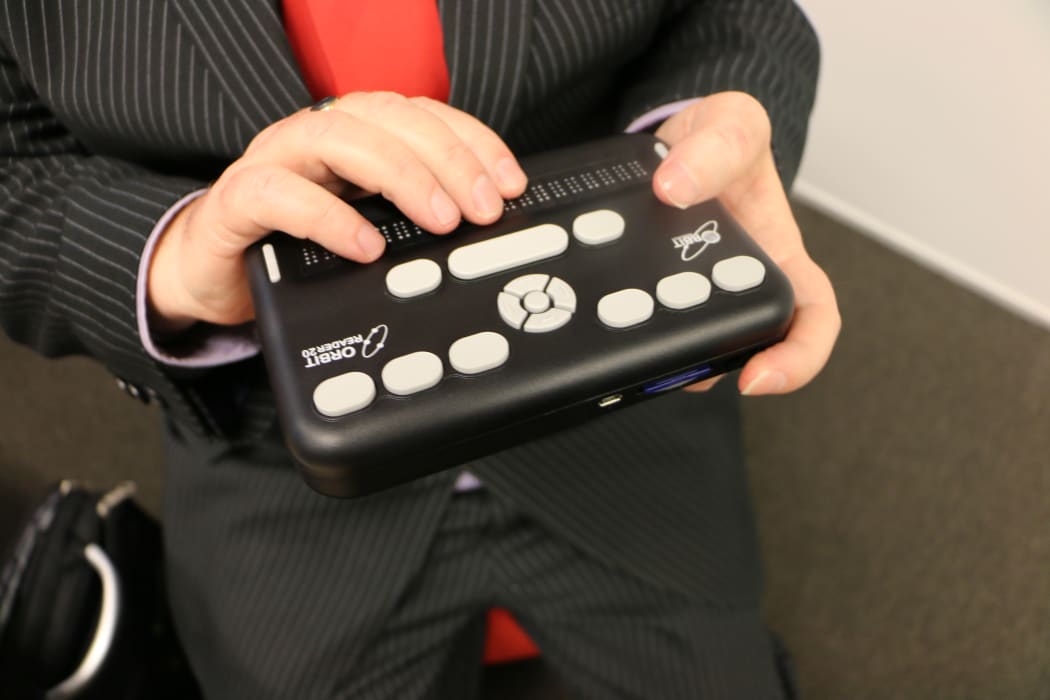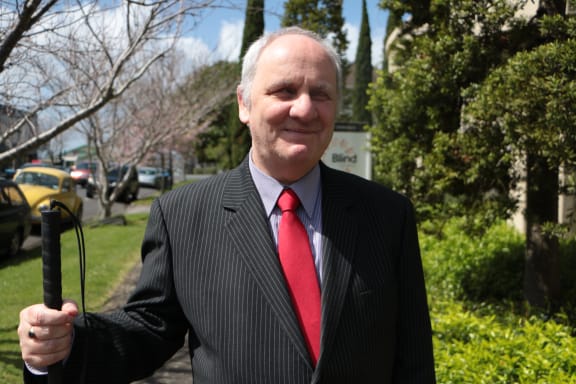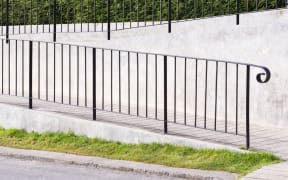The blind community will soon have emails and e-books at their fingertips as innovators figure out ways to slash the cost of braille technology.

The new cost-effective braille reader. Photo: RNZ / Eva Corlett
The reader is about the size of a modem and has been around for some time but this one will cost around $700 instead of thousands.
The Blind Foundation has worked alongside international organisations to come up with the cost-effective solution to read online material.
It uses Bluetooth to connect to a device and transcribes the sentences line by line on to a set of braille keys with small pins that change to form a letter.
"I can manually move through it and the pins change as I move up and down the screen," the Blind Foundation's Neil Jarvis said.
The technology allows blind people to read documents, texts, articles and emails and know exactly how words like place-names are spelt.

Neil Jarvis, of the Blind Foundation, involved in adaptive technology to improve lives of blind people. Photo: RNZ / Eva Corlett
Latest technology can also guide people into shopping malls and libraries, direct someone to the bathrooms or tell them how many steps to the cafe.
There are programmes that create a 3D, tactile version of images or maps, with topographical features.
However, Mr Jarvis said it was frustrating and exhausting that day-to-day barriers still existed, especially with touchscreen technology in places like airports and banks.
"You just want to get the job done, whether it's to withdraw money, to get a statement, to pay for goods or get on a flight."
"Whatever the scenario is, it's frustrating if you know that you could do it completely independently if the manufacturer and service providers had bothered to keep up with the technology."
He wants manufacturers and businesses to make their technology more inclusive.
"Access to information is essential if you're going to be an active citizen, someone who contributes to your society, someone who contributes to your local community."
Business NZ chief executive Kirk Hope said businesses like Google and Apple were upping their game, but there are still some challenges.
"What any company will do is say 'what's the cost-benefit?' ... both from a consumer perspective but from an accessibility perspective."
There have been great developments in inclusivity among business, but those would develop further as understanding develops, he said.
The Access Alliance is lobbying political parties to commit to minimum standards for accessibility.




